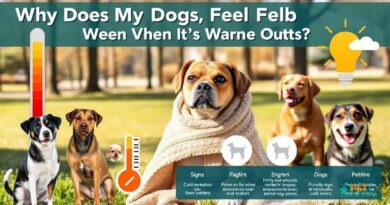O que é kennel cough
What is Kennel Cough?
Kennel cough, scientifically known as infectious tracheobronchitis, is a highly contagious respiratory disease that affects dogs. It is characterized by a persistent, dry cough that often sounds like a honking noise. This condition is particularly prevalent in environments where dogs are in close proximity to one another, such as kennels, dog parks, and grooming facilities. Understanding kennel cough is essential for dog owners, especially those who frequently socialize their pets.
Causes of Kennel Cough
The primary cause of kennel cough is a combination of viral and bacterial infections. The most common pathogens involved are the Bordetella bronchiseptica bacteria and the canine parainfluenza virus. Other viruses, such as adenovirus and canine distemper, can also contribute to the illness. The disease spreads through airborne droplets, direct contact with infected dogs, or contaminated surfaces, making it crucial for dog owners to be vigilant in preventing outbreaks.
Symptoms of Kennel Cough
Symptoms of kennel cough typically manifest within 3 to 10 days after exposure to an infected dog. The most notable symptom is a harsh, dry cough that may worsen with exercise or excitement. Other signs include nasal discharge, sneezing, lethargy, and a decreased appetite. While kennel cough is usually mild and self-limiting, it can lead to more severe respiratory issues, especially in puppies, older dogs, or those with compromised immune systems.
Diagnosis of Kennel Cough
Diagnosing kennel cough involves a thorough physical examination by a veterinarian, who will assess the dog’s medical history and symptoms. In many cases, the diagnosis is made based on the characteristic cough and the dog’s recent exposure to other dogs. Additional tests, such as blood work or X-rays, may be conducted to rule out other respiratory conditions and to determine the severity of the infection.
Treatment Options for Kennel Cough
Treatment for kennel cough often depends on the severity of the symptoms. In mild cases, supportive care, such as rest and hydration, may be sufficient. Cough suppressants and anti-inflammatory medications can help alleviate discomfort. In more severe cases, especially those involving secondary bacterial infections, antibiotics may be prescribed. It is essential for dog owners to follow their veterinarian’s recommendations to ensure a full recovery.
Prevention of Kennel Cough
Preventing kennel cough is primarily focused on vaccination and minimizing exposure to infected dogs. Vaccines are available for Bordetella bronchiseptica and canine parainfluenza, and they are often recommended for dogs that frequent boarding facilities or dog parks. Additionally, maintaining good hygiene practices, such as regular cleaning of shared spaces and avoiding contact with sick dogs, can significantly reduce the risk of infection.
When to Seek Veterinary Care
While kennel cough is generally mild, there are instances when veterinary care is necessary. Dog owners should seek immediate attention if their pet exhibits severe coughing, difficulty breathing, or shows signs of lethargy and loss of appetite. Puppies, senior dogs, or those with pre-existing health conditions are at a higher risk for complications and should be monitored closely.
Complications Associated with Kennel Cough
Although kennel cough is often a mild illness, complications can arise, particularly in vulnerable populations. Pneumonia is one of the most serious potential complications, which can occur if the infection spreads to the lungs. Other complications may include chronic bronchitis or exacerbation of pre-existing respiratory conditions. Prompt treatment and monitoring can help mitigate these risks and ensure a swift recovery.
Living with a Dog that has Kennel Cough
If your dog has been diagnosed with kennel cough, it is important to isolate them from other dogs to prevent the spread of the infection. Providing a comfortable and quiet environment for recovery is essential. Ensure your dog has access to fresh water and a nutritious diet to support their immune system. Follow your veterinarian’s instructions regarding medication and care to facilitate a smooth recovery process.



